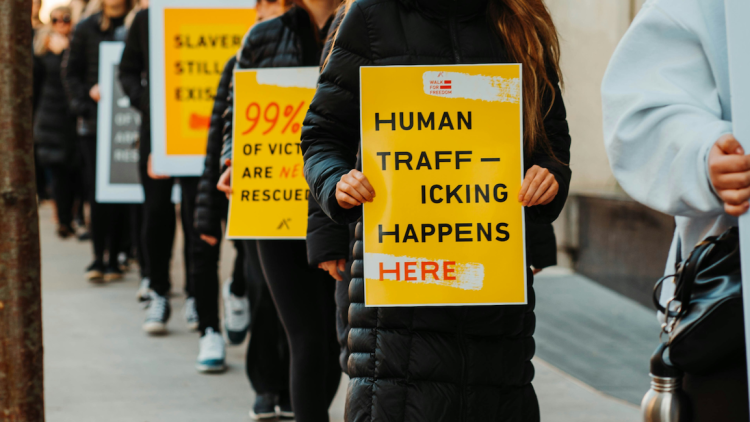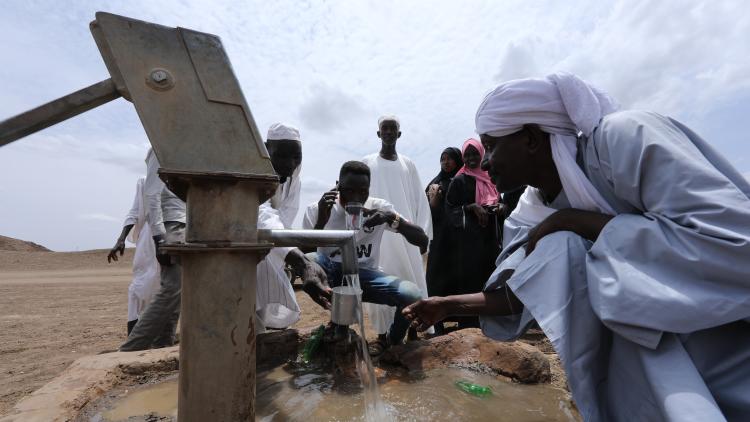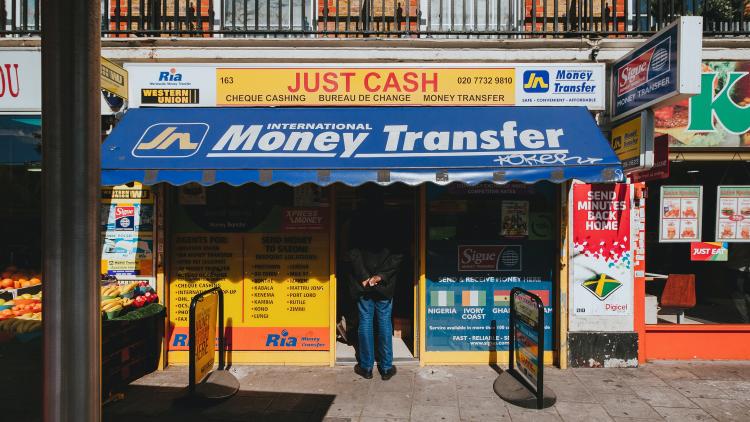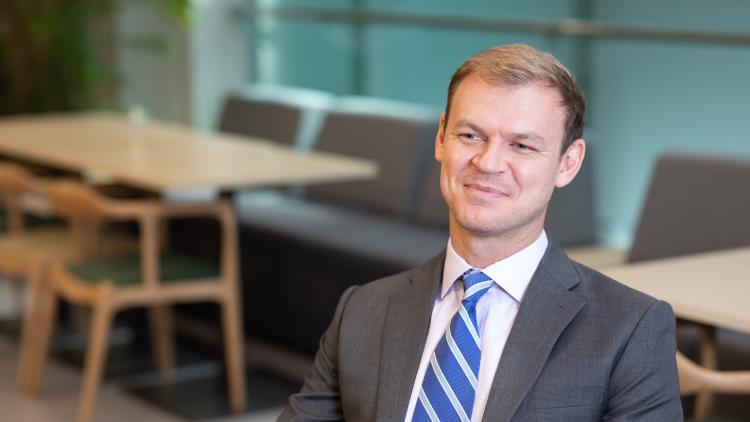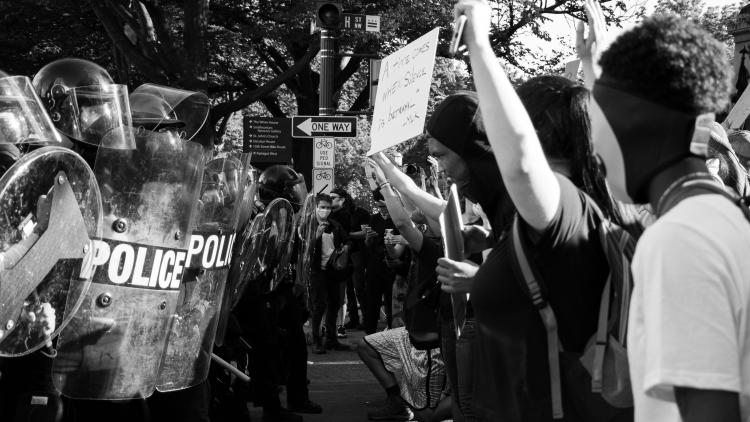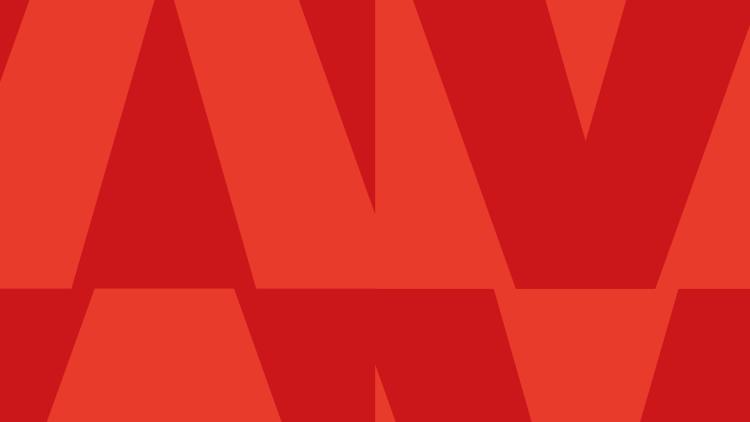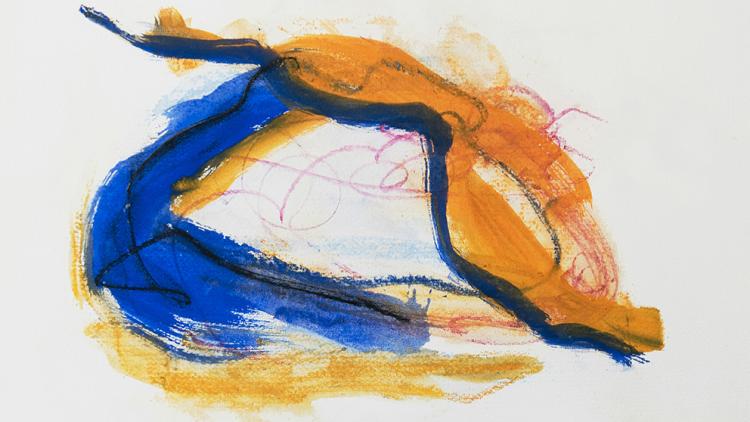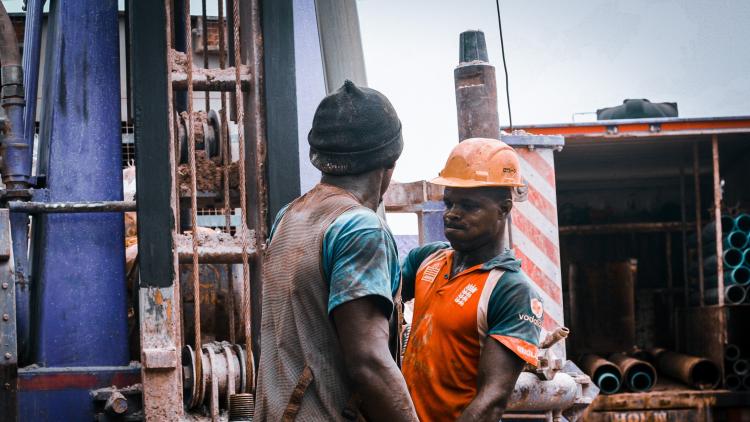MSc International Development (Online)
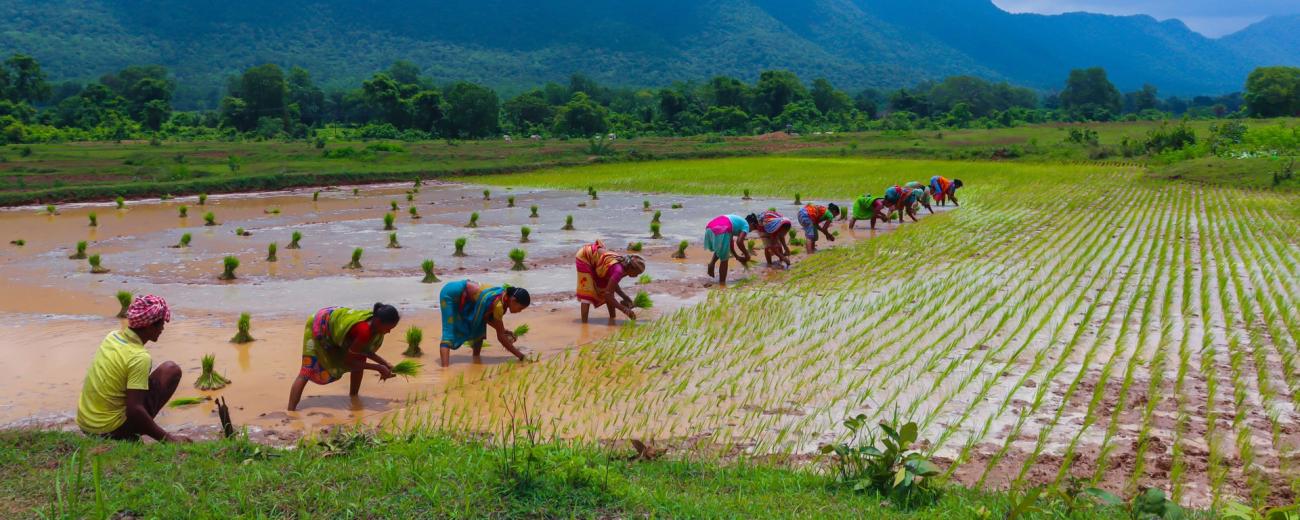

Key information
- Duration
- 2-years (Max. 3-years)
- Start of programme
- April / October
- Attendance mode
- Online learning (part-time)
- Fees
-
MA/MSc: £12,000
PGDip/PGCert: available as exit awards. - Entry requirements
-
We will consider all applications with 2:2 (or international equivalent) or higher.
-
Afghanistan: Qualifications (Bachelor equivalency): Master's degree
Equivalent to 2:ii: 80% or 3.3/4.0
-
Argentina: Qualifications (Bachelor equivalency): Titulo / Grado de Licenciado
Equivalent to 2:ii: 7/10
-
Australia: Qualifications (Bachelor equivalency): Bachelor degree
Equivalent to 2:ii: 2:2 or Credit or 65%
-
Austria: Qualifications (Bachelor equivalency): Bachelor degree
Equivalent to 2:ii: 2.5/5.0 and overall Pass (Bestanden)
-
Bahrain: Qualifications (Bachelor equivalency): Bachelor degree
Equivalent to 2:ii: 75% or GPA 3.0/4.0
-
Bangladesh: Qualifications (Bachelor equivalency): Bachelor’s from Bangladesh University of Engineering and Technology or Master's degree
Equivalent to 2:ii: 60% or GPA 3.0/4.0
-
Belgium: Qualifications (Bachelor equivalency): Licentiaat or Licencié
Equivalent to 2:ii: 13/20 or 65%
-
Botswana: Qualifications (Bachelor equivalency): Bachelor degree (5-year) or Master's from University of Botswana
Equivalent to 2:ii: GPA 3.5/5.0 or 65% or B- or Good
-
Brazil: Qualifications (Bachelor equivalency): Título de Bacharel / Título de Licenciado (4-year)
Equivalent to 2:ii: 7/10 or 70%
-
Brunei: Qualifications (Bachelor equivalency): Bachelor degree
Equivalent to 2:ii: Lower Second Class Honours with 50% overall
-
Bulgaria: Qualifications (Bachelor equivalency): Bachelor degree
Equivalent to 2:ii: 4.3/6
-
Cameroon: Qualifications (Bachelor equivalency): Diplôme d'Ingénieur/ Diplôme d'Études Supérieures de Commerce (5-year)
Equivalent to 2:ii: 12-13 assez bien (fair); 70-74; or B+
-
Canada: Qualifications (Bachelor equivalency): Bachelor degree
Equivalent to 2:ii: GPA 3.0/4.0 or 74-77% or overall B
-
China Qualifications (Bachelor equivalency): Bachelor degree (4-year)
Equivalent to 2:ii:
73% or 2.6/4.0 (C9 unis)
75% or 2.8/4.0 (Double First unis)
80% or 3.25/4.0 (all other unis) -
Colombia: Qualifications (Bachelor equivalency): Licenciado / Titulo (4-year)
Equivalent to 2:ii: 3.5/5.0
-
Croatia: Qualifications (Bachelor equivalency): Baccalaureus / Baccalaurea (Bachelor degree)
Equivalent to 2:ii: Overall score 3/5
-
Cyprus: Qualifications (Bachelor equivalency): Bachelor degree
Equivalent to 2:ii: 6.5/10
-
Czech Republic: Qualifications (Bachelor equivalency): Bachelor degree (180 ECTS)
Equivalent to 2:ii: 1.75/4.0 or High C 'dobre’ (good)
Information for prospective students from the Czech Republic
-
Denmark: Qualifications (Bachelor equivalency): Bachelor degree
Equivalent to 2:ii: 7/12 or 8/13 or grade C
-
Egypt: Qualifications (Bachelor equivalency): Bachelor degree
Equivalent to 2:ii: 70% or 3.0/4.0
-
Estonia: Qualifications (Bachelor equivalency): Bakalaurusekraad / University Specialist's Diploma / Professional Higher Education Diploma
Equivalent to 2:ii: 4.0/5.0
-
Finland: Qualifications (Bachelor equivalency): Bachelor / Kandidaatti / Kandidat (180 ECTS credits)
Equivalent to 2:ii: 3/5 or 2/3
-
France: Qualifications (Bachelor equivalency): Licence or Diplôme from a grande école
Equivalent to 2:ii: 11.5 out 20
-
Gambia: Qualifications (Bachelor equivalency): Master's degree (2-year)
Equivalent to 2:ii: GPA 3.0/4.3 or 64% or B
-
Germany: Qualifications (Bachelor equivalency): Bachelor degree (180 ECTS)
Equivalent to 2:ii: 2.6/5
-
Ghana: Qualifications (Bachelor equivalency): Bachelor degree
Equivalent to 2:ii: 2:2 (Second Class Lower Division) or GPA 3.25/5.0 or 60%
-
Greece: Qualifications (Bachelor equivalency): Bachelor degree
Equivalent to 2:ii: 6.50/10
-
Hong Kong: Qualifications (Bachelor equivalency): Bachelor degree
Equivalent to 2:ii: Upper second class or GPA 2.7/4.0 or 75% or B Minus
-
Hungary: Qualifications (Bachelor equivalency): Bachelor (Alapfokozat) or Diploma (Egyetemi Oklevél)
Equivalent to 2:ii: 3.5/5.0
-
Iceland: Qualifications (Bachelor equivalency): Bachelor degree (Baccalaureus or Bakkalarprof)
Equivalent to 2:ii: 7.0 out of 10
-
India: Qualifications (Bachelor equivalency): Bachelor degree
Equivalent to 2:ii: CGPA: 55-60% or 5.5/10 - 6.0/10
-
Iraq: Qualifications (Bachelor equivalency): Bachelor degree (Licence/Karshani)
Equivalent to 2:ii: 0.7
-
Israel: Qualifications (Bachelor equivalency): Bachelor degree
Equivalent to 2:ii: 70% or C+
-
Italy: Qualifications (Bachelor equivalency): Laurea (180 ECTS)
Equivalent to 2:ii: 100/110
-
Japan: Qualifications (Bachelor equivalency): Bachelor degree
Equivalent to 2:ii: 70% or C+ or 3.0
-
Jordan: Qualifications (Bachelor equivalency): Bachelor degree
Equivalent to 2:ii: 3.0/4.0 or 70%
-
Kazakhstan: Qualifications (Bachelor equivalency): Bachelors (Bakalavr Diplomi) or Specialist Diploma
Equivalent to 2:ii: GPA 3.0/4.0 or GPA 4.0/5.0 or B
-
Kenya: Qualifications (Bachelor equivalency): Bachelor degree
Equivalent to 2:ii: 2:2 or 60%
-
Kuwait: Qualifications (Bachelor equivalency): Bachelor degree
Equivalent to 2:ii: 3.0/
-
Latvia: Qualifications (Bachelor equivalency): Bakalaura Diploms (Bachelor's) or Profesionālā Bakalaura Diploms
Equivalent to 2:ii: 7/10
-
Lebanon: Qualifications (Bachelor equivalency): Bachelor degree / Licence
Equivalent to 2:ii: 75% or Grade B-/C+ or GPA 2.8/4.0 or 14/20
-
Liberia: Qualifications (Bachelor equivalency): Master's degree
Equivalent to 2:ii: 75% or 2.8/4.0
-
Libya: Qualifications (Bachelor equivalency): Bachelor Degree from selected institution
Equivalent to 2:ii: 75% or GPA 3.0/4.0
-
Lithuania: Qualifications (Bachelor equivalency): Bachelors / Bakalauro (180 ECTS)
Equivalent to 2:ii: 7.5/10
-
Malawi: Qualifications (Bachelor equivalency): Master's degree
Equivalent to 2:ii: 70% or GPA 3.0/4.0
-
Malaysia: Qualifications (Bachelor equivalency): Bachelor degree
Equivalent to 2:ii: 3.0/4.0 or B (Class 2 Division 2)
-
Malta: Qualifications (Bachelor equivalency): Bachelor degree
Equivalent to 2:ii: Lower Second Class with 65% or Category IIB
-
Mexico: Qualifications (Bachelor equivalency): Titulo de Licenciado
Equivalent to 2:ii: 8/10 or 80%
-
Morocco: Qualifications (Bachelor equivalency): Licence / Licence d'Etudes Fondamentales / Licence Professionnelle
Equivalent to 2:ii: 13/20
-
Nepal: Qualifications (Bachelor equivalency): Master's degree / Bachelor degree (4-year)
Equivalent to 2:ii: 70%
-
Netherlands: Qualifications (Bachelor equivalency): Bachelor degree
Equivalent to 2:ii: 6.5/10 or GPA 3.0
-
New Zealand: Qualifications (Bachelor equivalency): Bachelor degree
Equivalent to 2:ii: Majority of credited modules B- or above
-
Nigeria: Qualifications (Bachelor equivalency): Bachelor degree
Equivalent to 2:ii: Lower Second Class or 55% or GPA 3.0/5.0 or 2.5/4.0 or 4.0/7.0
-
Norway: Qualifications (Bachelor equivalency): Bachelors / Bachelorgrad (180 ECTS) or Candidatus /a magisterii
Equivalent to 2:ii: Grade C (with at least 80 ECTS) at grade B or 3.2
-
Oman: Qualifications (Bachelor equivalency): Bachelor degree
Equivalent to 2:ii: 3.0/4.0
-
Pakistan: Qualifications (Bachelor equivalency): Bachelor (4-year) / Master's from HEC recognised institution
Equivalent to 2:ii: CGPA 2.7 or 65%
-
Philippines: Qualifications (Bachelor equivalency): Master’s from recognised institution or Centre of Excellence / Bachelor from prestigious institution or Centre of Excellence
Equivalent to 2:ii:
Prestigous Universities: GPA 3.3/4.0 or 1.75/5.0 or Grade B or 83%
Recognised Universities: GPA 3.5/4.0 or 2.0/5.0 or Grade B or 87% -
Poland: Qualifications (Bachelor equivalency): Licencjat or Inżynier (3-year)
Equivalent to 2:ii: 4.25/5
-
Portugal: Qualifications (Bachelor equivalency): Licenciado (180 ECTS)
Equivalent to 2:ii: 15/20
-
Qatar: Qualifications (Bachelor equivalency): Bachelor degree
Equivalent to 2:ii: GPA 3.0/4.0 or 3.5/5.0 or 70% or 7/10
-
Romania: Qualifications (Bachelor equivalency): Diplomă de Licenţă / Diplomă de Inginer / Diplomă de Urbanist Diplomat
Equivalent to 2:ii: 8/10
-
Russia: Qualifications (Bachelor equivalency): Diplom Bakalavra or Specialist Diploma
Equivalent to 2:ii: 3.8/5.0
-
Rwanda: Qualifications (Bachelor equivalency): Bachelor (4-year)
Equivalent to 2:ii: Lower Second Class Honours or 65-69% or 14/20
-
Saudi Arabia: Qualifications (Bachelor equivalency): Bachelor degree
Equivalent to 2:ii: GPA of 3.0/4.0 or 3.5/5.0 or overall 70%
-
Singapore: Qualifications (Bachelor equivalency): Bachelor degree
Equivalent to 2:ii: CAP 3.5/5.0 or 3.0/4.0
-
Slovakia: Qualifications (Bachelor equivalency): Bakalár / Bachelor
Equivalent to 2:ii: 70% or 2.0 overall or C
-
South Africa: Qualifications (Bachelor equivalency): Bachelor (4-year)
Equivalent to 2:ii: 60%
-
South Korea: Qualifications (Bachelor equivalency): Bachelor degree
Equivalent to 2:ii: GPA 2.7/4.0 or 3.0/4.3 or 3.3/4.5
-
Spain: Qualifications (Bachelor equivalency): Título de Grado / Título de Licenciado / Título de Ingeniero / Titulo de Arquitecto
Equivalent to 2:ii: 6.5/10 or GPA 1.75/4.0
-
Sri Lanka: Qualifications (Bachelor equivalency): Bachelor Special Degree or Professional Degree (4-year)
Equivalent to 2:ii: 55% or 2:2 or GPA 3.0/4.0
-
Sudan: Qualifications (Bachelor equivalency): Bachelor (5-year)
Equivalent to 2:ii: 65%+ or B
-
Sweden: Qualifications (Bachelor equivalency): Bachelor degree / Kandidatexamen / Yrkesexamen
Equivalent to 2:ii: B (90 credits) and C (90 credits) or Very Good (70 credits) and Good (110 Credits) or C (180 credits)
-
Switzerland: Qualifications (Bachelor equivalency): Diplom / Diplôme / Lizentiat / Staatsdiplom / Diplôme d’Etat
Equivalent to 2:ii: Overall 4.5/6 or 7/10 or 2.5/5
-
Syria: Qualifications (Bachelor equivalency): Licence / al-ijaza-fi / Bachelor
Equivalent to 2:ii: 70%+ or 'Good'
-
Taiwan: Qualifications (Bachelor equivalency): Bachelor degree
Equivalent to 2:ii: 68-70% or GPA 2.8/4.0-3.0/4.0
-
Thailand: Qualifications (Bachelor equivalency): Bachelor degree
Equivalent to 2:ii: GPA 3.0/4.0
-
Tunisia: Qualifications (Bachelor equivalency): Diplôme National d'Ingénieur / Diplôme National d'Architecture / Licence / Maîtrise
Equivalent to 2:ii: 12 out of 20
-
Turkey: Qualifications (Bachelor equivalency): Lisans Diplomasi
Equivalent to 2:ii: GPA 2.6/4 from the top universities and 3.0/4 from all others
-
Uganda: Qualifications (Bachelor equivalency): Bachelor degree
Equivalent to 2:ii: 2:2 (Lower Second) or B or GPA 3.0/5.0
-
Ukraine: Qualifications (Bachelor equivalency): Bachelor degree or Specialist Diploma
Equivalent to 2:ii: 8/12 or 3.8/5
-
United Arab Emirates: Qualifications (Bachelor equivalency): Bachelor degree
Equivalent to 2:ii: GPA 3.0/4.0 or 3.2/5.0
Information for prospective students from the United Arab Emirates
-
United States of America: Qualifications (Bachelor equivalency): Bachelor degree
Equivalent to 2:ii: GPA 3.0/4.0
-
Vietnam: Qualifications (Bachelor equivalency): Bachelor degree (4-year)
Equivalent to 2:ii: Overall score of 6.5/10
-
Yemen: Qualifications (Bachelor equivalency): Master's degree
Equivalent to 2:ii: Overall 'Good' (71-77%) or Aden University 80-83% (or 3.0/4.0)
-
Zambia: Qualifications (Bachelor equivalency): Master's degree
Equivalent to 2:ii: 65% or B or Credit or GPA 1.7/2.5 or 3.3/5.0
-
Zimbabwe: Qualifications (Bachelor equivalency): Bachelor degree
Equivalent to 2:ii: 2:2 or 65%
-
In addition to degree classification we take into account other elements of the application such as supporting statement. References are optional, but can help build a stronger application if you fall below the 2:2 requirement or have non-traditional qualifications.
See international entry requirements and English language requirements.
Course overview
The online MSc International Development builds on the established global reputation of the Development Studies department as one of the top places in the world to study international development.
We welcome applications from those who have worked in development, however broadly defined, but also from students without relevant work experience who can demonstrate a strong interest in, and understanding of, issues pertaining to international development.
International Development is a dynamic field concerned not only with processes of change in the Global South, but also of social, economic, political and cultural change in middle income countries and the Global North. The perspective of International Development analyses these processes as interdependent and engages major policy challenges as well as efforts to overcome poverty and insecurity while also presenting a structural analysis.
Programme
This programme provides a solid interdisciplinary social science formation in the political economy and sociology of development and develops students’ capacities for independent and critical analysis.
Some topics will include:
- conceptualising and questioning development
- marxism, dependency and structuralism
- gender and development
- measuring development
- neoclassical economics, neoliberalism and development
- global institutions, agendas and development targets
- industrial policy
- agriculture and agrarian change
- labour and labour markets
- decolonial approaches to development
Why study MSc International Development (Online) with SOAS?
- SOAS is ranked 2nd in the world for Development Studies (QS World University Rankings 2023).
- We're ranked 6th in UK for graduate employability (QS World University Rankings 2023).
- Our degrees are inter-disciplinary, combining political-economy, politics, anthropology, and history approaches to analyse processes of development in different contexts around the world.
- Our academic staff create an intellectually stimulating and challenging space across the many branches of international development and humanitarianism that make up Development Studies.
- All modules engage with questions of climate crisis, recognising its impact and interaction with processes of inequality and change.
- Our staff specialise in a range of thematic areas including sustainability and climate change, migration and displacement, conflict, humanitarian action, labour, political ecology, and aid and institutions.
- Combined with exceptional resources and our interdisciplinary approach, we offer a unique learning and research opportunity for our diverse and vibrant student community.
The MSc programme’s emphasis on transferable analytical skills has been of great benefit to the many graduates who have returned to, or taken up, professional careers in development in international organisations, government agencies and non-government organisations
Structure
Students must take 180 credits comprised of one core and three elective modules totalling 120 taught credits, four supporting mini modules and a 60-credit dissertation.
- Core modules: A core module is required for the degree programme, so must always be taken and passed before you move on to the next year of your programme. The core modules are offered in every session.
- Elective modules: These are designed to help students design their own intellectual journey while maintaining a strong grasp of the fundamentals. Elective modules can be chosen from a list of subjects offered across SOAS' portfolio of programmes.
Dissertation
| Module | Credits | Type |
|---|---|---|
| Dissertation in Development Studies | 60 | Core |
Core module
| Module | Credits | Type |
|---|---|---|
| The Political Economy and Sociology of Development | 30 | Core |
Students must choose a minimum of one elective from Group A. Students may choose a maximum of one elective from a further list of Open Options.
Development Studies
| Type | Module Title | Apr ‘24 | Oct ‘24 | Apr ‘25 | Oct ‘25 |
Core
| The Political Economy and Sociology of Development | * | * | * | * |
| Humanitarian Principles and Practice | * | * | * | * | |
| List A | Understanding Violence, Conflict and Development | * | * | ||
| Critical Insights in Forced Migration | * | * | |||
| Human and Critical Security Studies | * | * | |||
| The Politics of Gender and Feminisms in Development | * | * | |||
| List B | Urban Sustainability | * | * | ||
| Food Security and Social Protection | * | * | |||
| Climate Change and Development | * | * | * | * | |
| Understanding Sustainable Development | * | * | * | * | |
Dissertation
| Dissertation (Stage 1) | * | * | * | * |
| Dissertation (Stage 2) | * | * | * | * | |
| Dissertation (Stage 3) | * | * | * | * | |
| Dissertation (Stage 4) | * | * | * | * |
Important notice
The information on the website reflects the intended programme structure against the given academic session. The modules are indicative options of the content students can expect and are/have been previously taught as part of these programmes.
However, this information is published a long time in advance of enrolment and module content and availability is subject to change.
Teaching and learning
This programme is taught 100% online through our BLE (the virtual Bloomsbury Learning Environment).
Virtual Learning Environment (VLE)
In the virtual Bloomsbury Learning Environment (BLE) you will have access to learning materials and course resources anytime so that you can fit your studies around your existing commitments. There are also a number of seminars and tutorials which are scheduled to fit students’ schedules and time-zones.
For each module, students will be provided with electronic access through the SOAS Library, to all necessary materials from a range of appropriate sources.
There are two key components of the student experience which distinguish distance learning from our other programmes:
- Discussion forums: peer-to-peer learning and engagement guided by the tutor.
- E-tivities: assessments which are formulated around a pedagogy of academic skills development which culminate in the submission of assessments, known as e-tivities.
Study timetable
In addition to a dedicated Associate Tutor, a study timetable is provided for each module and for the overall programme to help you to plan and organise your time.
The programme is broken down into two study sessions per year (October to February and April to August). Each subject module lasts 16 weeks, followed by a dissertation mini module lasting 8 weeks.
| Activity | Duration |
|---|---|
| Substantive module | 16 weeks |
| Reading weeks | 2 weeks |
| Research mini module | 6 weeks |
| Reading weeks | 2 weeks |
Assessment
Each module is assessed by coursework through online written assessments (‘e-tivities’*). There are no exams. The e-tivities provide formative and summative feedback to students as a means of monitoring their progress and encouraging areas in which they can improve.
*An 'e-tivity' is a framework for online, active and interactive learning following a format that states clearly to the students its 'Purpose'; the 'Task' at hand; the contribution or 'Response' type; and the 'Outcome' (Salmon, G. (2002) E-tivities: The Key to Active Online Learning, New York and London: Routledge Falmer.)
Research training and dissertation
The dissertation module is presented in four development parts, which will follow each of your module sessions. Research modules one and three are formative modules only and are not assessed.
The dissertation is assessed by the submission of a research proposal in research module two and the final dissertation of no more than 10,000 words at the end of research module four.
Pre-entry reading
- Marois, Thomas (2012) States, Banks and Crisis: Emerging Finance Capitalism in Mexico and Turkey. Cheltenham, Gloucestershire, UK: Edward Elgar Publishing.
- Mezzadri, Alessandra (2017) The Sweatshop Regime: Labouring Bodies, Exploitation and Garments Made in India. Cambridge: Cambridge University Press.
- Shah, Alpa and Lerche, Jens and Axelby, Richard and Denbabaali, D. and Donegan, B. and Raj, J. and Thakur, Vineet (2017) Ground Down by Growth: Inequality in 21st century India. London: Pluto.
- Vergara-Camus, Leandro (2014) Land and Freedom. The Peasant Development Alternatives to Neoliberalism of the Landless People in Brazil and the Zapatista Movement in Chiapas. London: Zed Books.
Fees and funding
| MA/MSc | PGDip* | PGCert* |
|---|---|---|
| £12,000 | See below | See below |
* PGDip and PGCert are available as exit awards.
- See online and distance learning fees for further information.
Pay as you learn
Our online programmes can be paid in full at the time of enrolment or on a pay as you learn basis. Pay as you learn means you pay for modules prior to enrolment (£3,000 each).
Postgraduate loans
If you have been a resident in England for three years you may be eligible. For more information, please see postgraduate funding and finance.
Application
To make an application, please visit www.cefims.ac.uk and how to apply (ODL).
Employment
A degree from the Department of Development Studies at SOAS will further develop your understanding of the world and how society is organised, with specific focus on violence and conflict, the role of aid, refugees and forced migration. Graduates leave with a range of transferable skills, including critical thinking, analytical skills and cultural awareness.
Recent Department of Development Studies graduates have been hired by:
- Amnesty International
- BBC World Service
- British Embassy Brussels
- Department for International Development
- Economist Intelligence Unit (EIU)
- Embassy of Japan
- Government of Pakistan
- Hong Kong Economic & Trade Office
- International Committee of the Red Cross (ICRC)
- International Labour Organization (ILO)
- KPMG LLP
- Médecins Sans Frontières (MSF)
- National Health and Medical Research Council
- Overseas Development Institute
- Oxfam
- Royal Norwegian Embassy
- Save the Children UK
- Thinking Beyond Borders
- US Department of State
- UN World Food Programme
- UN High Commissioner for Refugees
- WaterAid
Find out about our Careers Service.

